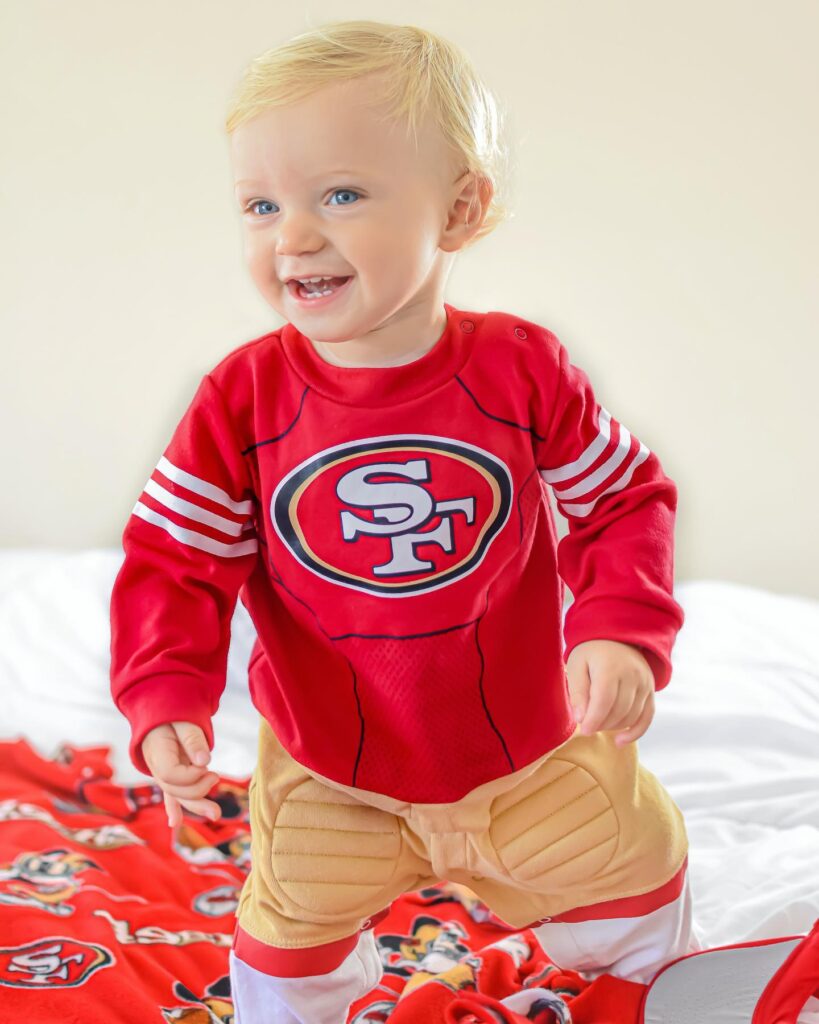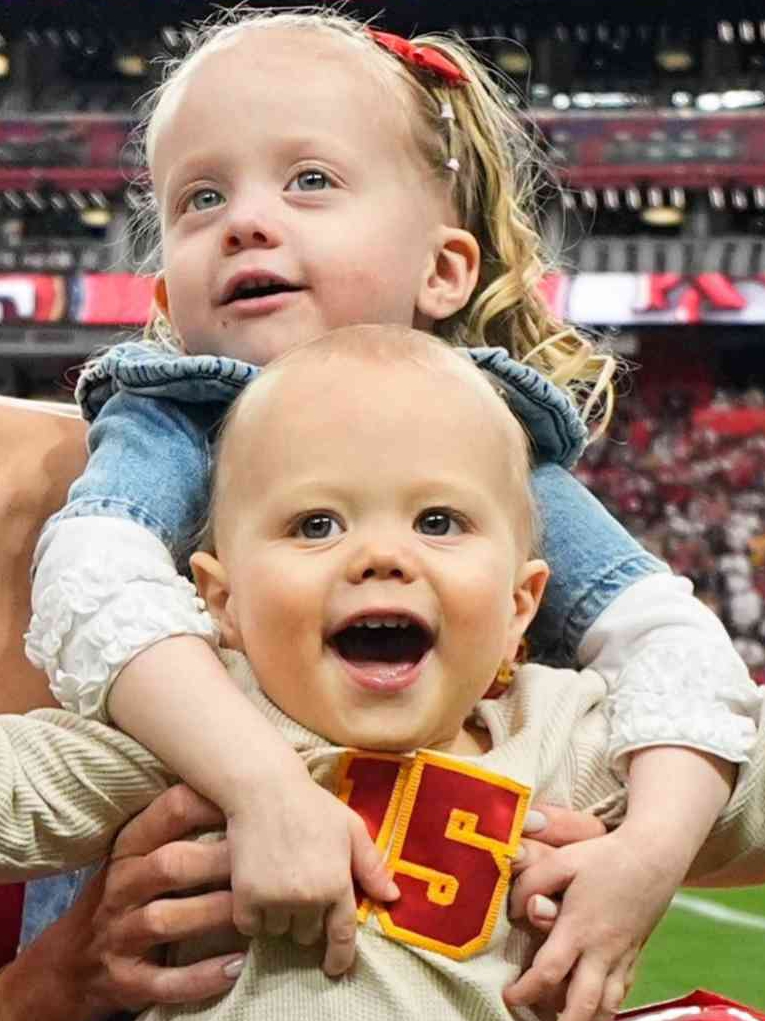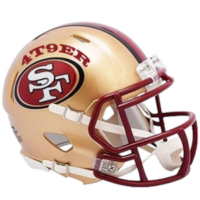
The San Francisco 49ers (also written as the San Francisco Forty-Niners and nicknamed the Niners)[7] are a professional American football team based in the San Francisco Bay Area. The 49ers compete in the National Football League (NFL) as a member of the league’s National Football Conference (NFC) West division, and play their home games at Levi’s Stadium in Santa Clara, California, located 38 miles (61 km) southeast of San Francisco. The team is named after the prospectors who arrived in Northern California in the 1849 Gold Rush.[8]
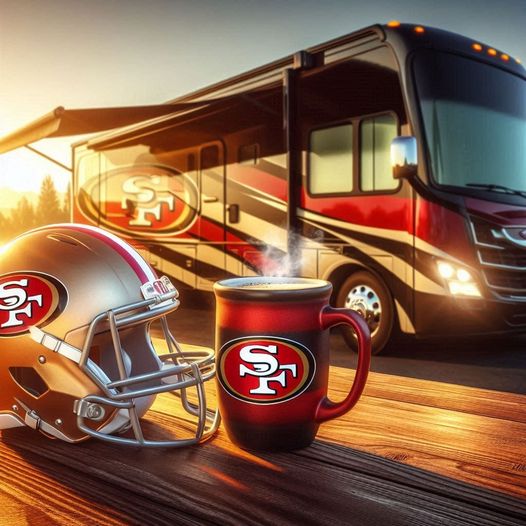
The 49ers won five Super Bowl championships between 1981 and 1994. Four of those came in the 1980s, and were led by Hall of Famers Joe Montana, Jerry Rice, Ronnie Lott, Steve Young, Charles Haley, Fred Dean, and coaches Bill Walsh and George Seifert.[14][15] They have been division champions 22 times between 1970 and 2023, making them one of the most successful teams in NFL history.[16][17] The 49ers sit alone in NFL history for most playoff wins (38), having been in the league playoffs 30 times (29 times in the NFL and one time in the AAFC), and have also played in the most NFC Championship games (19), hosting 11 of them, also an NFC record. The team has set numerous notable NFL records, including most consecutive away games won (18), most points scored in a single postseason (131), most consecutive seasons leading the league in scoring (4), most consecutive games scored (420 games from 1977 to 2004),[18] most field goals in a season (44), most games won in a season (18), and most touchdowns (8) and points scored (55) in a Super Bowl.
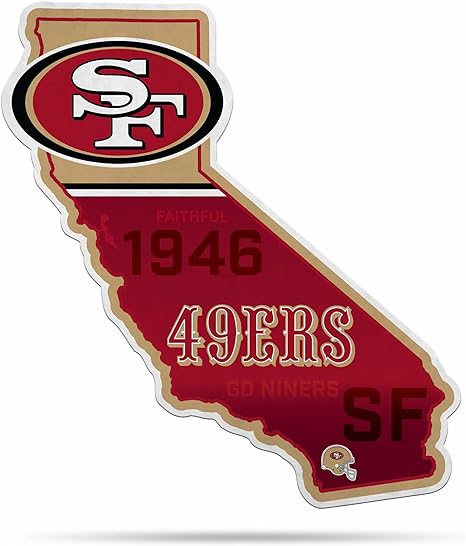
Super Bowl XVI champions (1981)

With the offense playing well consistently, Walsh and the 49ers focused on overhauling the defense in 1981. Walsh took the highly unusual step of overhauling his entire secondary with rookies and untested players, bringing on board Ronnie Lott, Eric Wright and Carlton Williamson and giving Dwight Hicks a prominent role. He also acquired veteran linebacker Jack “Hacksaw” Reynolds and veteran defensive end and sack specialist Fred Dean. These additions, when added to existing defensive mainstays like Keena Turner, turned the 49ers into an offensively and defensively balanced, dominant team. After a 1–2 start, the 49ers won all but one of their remaining games to finish with a 13–3 record; at this time, it was the team’s best regular-season win–loss record. Dean made the Pro Bowl, as did Lott and Hicks. Led by Montana, the unusual offense was centered on the short passing game, which Walsh used as ball control. Dwight Clark and Freddie Solomon had excellent years receiving; Clark as the possession receiver, and Solomon as more of a deep threat. The 49ers’ running game, however, was among the weakest in the league. Ricky Patton led the 49ers with only 543 yards rushing. The 49ers’ most valuable running back, however, might have been Earl Cooper, whose strength was as a pass catching back. The 49ers faced the New York Giants in the divisional playoffs and won, 38–24. This set up an NFC championship game match-up with the Dallas Cowboys, whom the 49ers historically could not beat during their playoff runs in the early 1970s. The 49ers played the Cowboys tough, but the Cowboys forced six turnovers and held the lead late. The 49ers were down 27–21 and on their own 11-yard line with 4:54 remaining. As Montana had done for Notre Dame and the 49ers so many times, he led the 49ers on a sustained final 89-yard drive to the Cowboys’ 6-yard line. On a 3rd-and-3 play, with his primary receiver covered, Montana rolled right and threw the ball off balance to Dwight Clark, who leaped in the end zone and caught the ball to tie the game at 27 (“The Catch“), with the extra point giving the 49ers the lead. The Cowboys had one last chance to win. On the first play of the next possession, Cowboys receiver Drew Pearson caught a pass from Danny White and reached midfield before he was pulled down by the jersey at the 49ers’ 44-yard line by cornerback Eric Wright, who prevented a winning touchdown. On the next play, White was sacked by Lawrence Pillers and fumbled the ball, which was recovered by Jim Stuckey, giving the 49ers the win and a trip to their first-ever Super Bowl, against the Cincinnati Bengals, who were also in their first Super Bowl. In Super Bowl XVI The 49ers took a 20–0 halftime lead and held on to win 26–21 behind kicker Ray Wersching‘s four field goals and a key defensive stand. In the ’81 season, the defense had been a significant reason for the team’s success, despite hiding in the shadow of the then-innovative offense. Montana won MVP honors mostly on the strength of leading the 49ers on a 92-yard, 12-play drive culminating in a touchdown pass to Earl Cooper. The 49ers completed one of the most dramatic and complete turnarounds in NFL history, going from a 2–14 season and a 6–10 season to a Super Bowl championship.[33]
Empower
Next Generation of Niner Fans

